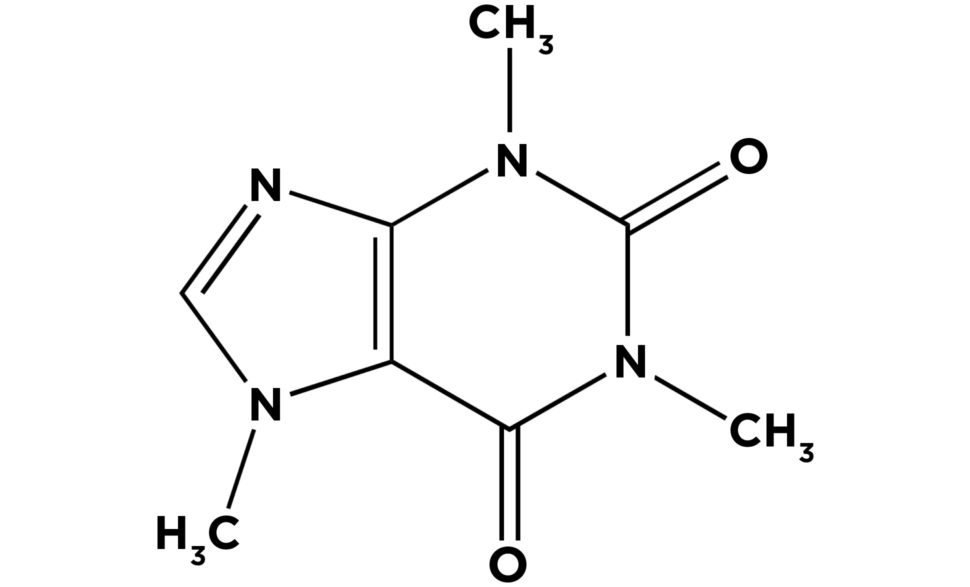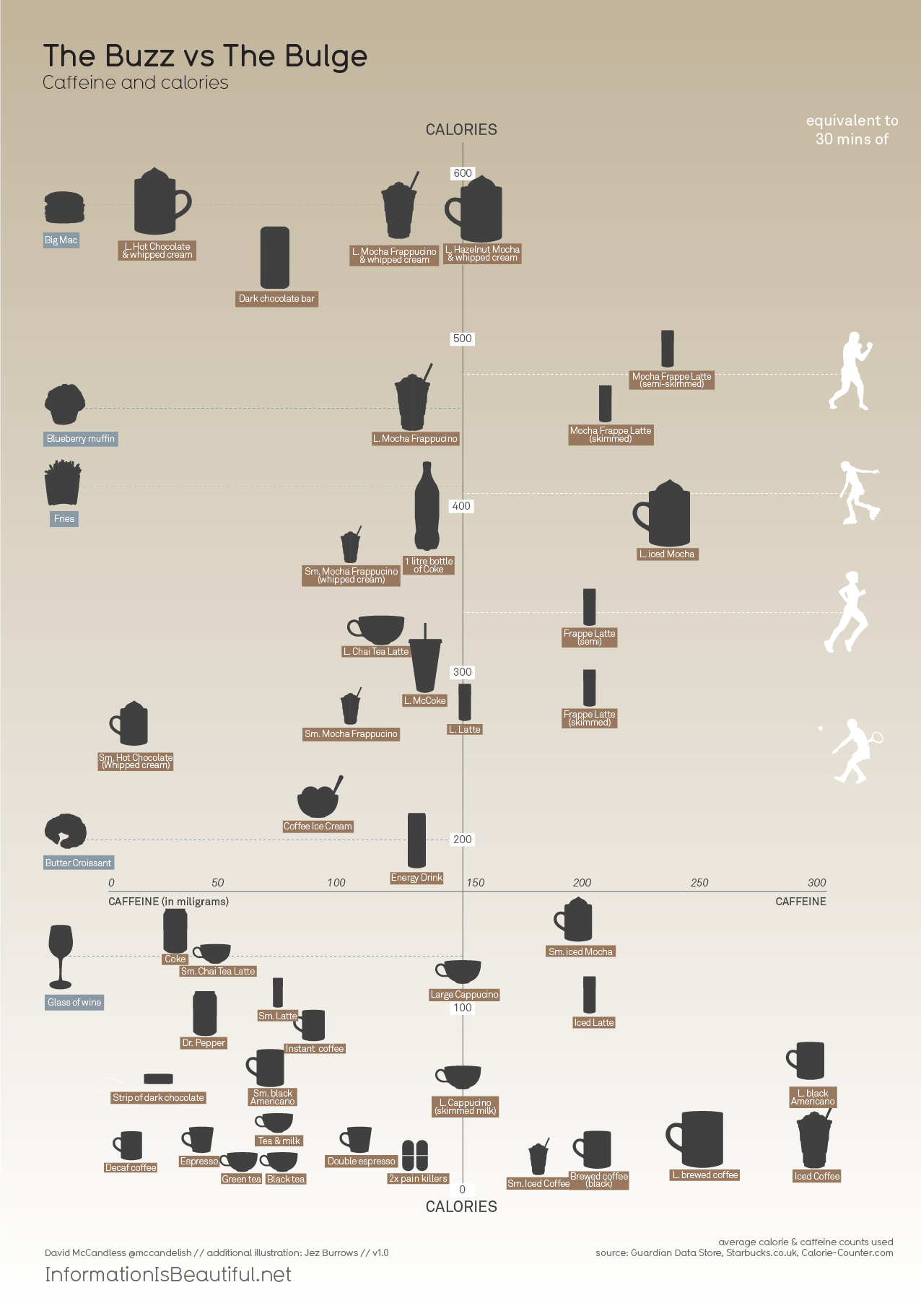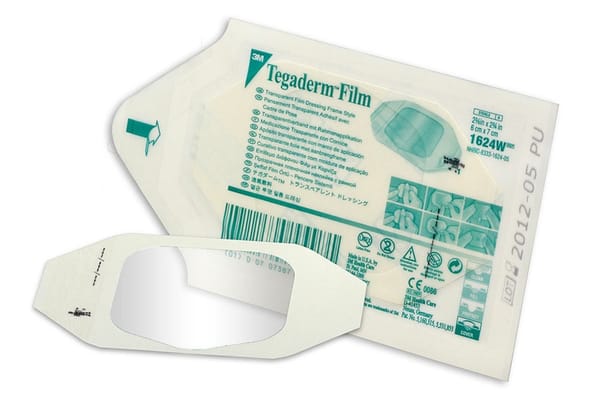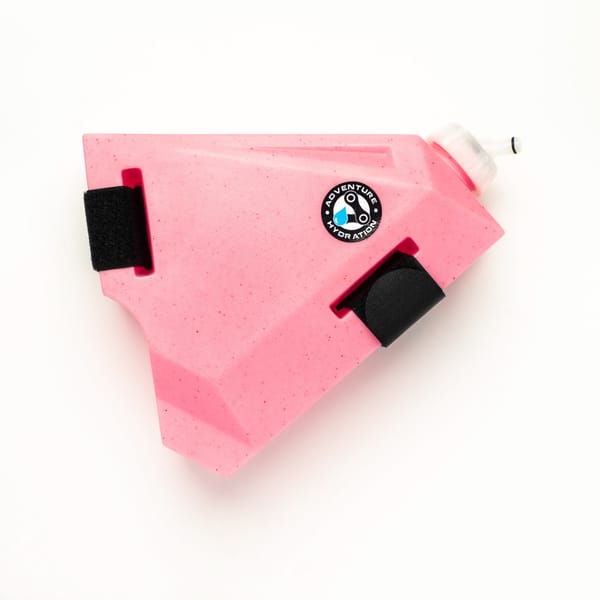Can Caffeine Improve Your Workout?

90% of Americans consume caffeine daily, and eight out of ten drink coffee. The coffee you drank this morning contains a powerful natural insecticide, don’t let that scare you though. That insecticide is actually the entire reason you drink the stuff. It’s called caffeine.
If you’re like me, you spend all day at a desk job and get up more than once to grab a cup of joe. Is caffeine okay? Or should caffeine be avoided?
Caffeine can be a great tool when used properly, but can do more harm than good when it isn’t.
Here’s how to properly wield the great power of caffeine.
How Caffeine Works

As we work through our day, a chemical called adenosine builds up and binds to receptors in our brains. Adenosine has an inhibitory effect in the central nervous system so this causes us to feel tired.
Caffeine’s stimulatory effects are credited primarily to its capacity to block adenosine receptors, thereby reducing the inhibitory effect of adenosine on the brain. This reduction in adenosine activity leads to increased activity of the neurotransmitters dopamine and glutamate.
- Dopamine plays important roles in executive functions, motor control, motivation, arousal, reinforcement, and reward.
- Glutamate is the most abundant excitatory neurotransmitter and is involved in cognitive functions such as learning and memory.
Caffeine consumption also leads to an increase in adrenaline which plays an important role in the fight-or-flight response by increasing blood flow to muscles, output of the heart, pupil dilation, and blood sugar.
How Much Caffeine is the Right Amount?
When used properly, caffeine can energize your routine, help you muster the motivation to not miss a workout and help kick-start your metabolism.
When used improperly, caffeine addiction can bring down your energy levels all day long and cause you to consume more calories.
The average American consumes 250 mg of caffeine per day. That equates to about two small cups of coffee, or 3 shots of espresso. This math can get tricky though as all coffee is not created equal. CaffeineInformer has a great database that can help you find out how much caffeine is in the coffee or other beverage you’re consuming.
To get the optimal effects of caffeine, you want to consume the smallest amount possible that still gives you the benefits of the caffeine boost. It’s been shown that three to six milligrams of caffeine per kilogram of bodyweight is helpful. Anything beyond nine milligrams per kilogram can actually start to be detrimental.
- Start at the low end. Take your body weight in pounds and divide by 2.2 to get your weight in kilograms. Then multiple your weight in kilograms by three. Consume 3 mg of caffeine per kg of bodyweight.
- Titrate up. Work your way up until you notice that caffeine boost. You might feel great at 3 mg of caffeine per kg of bodyweight or you might need to go all the way up to 6 mg of caffeine per kg of bodyweight, but don’t go beyond that.
Caffeine affects everyone differently, listen to your body and it will tell you how much you need.
Beware of Coffee Calories
How you consume caffeine is just as important as how much you consume. While undoubtedly delicious, relying on high-calorie energy drinks or Frappuccinos for caffeine will lead to fat gain.
The awesome chart below illustrates just how unwieldy calories vs caffeine can get:

Make wise caffeinated drink choices – Stick to black coffee, espresso, or tea if you want to lose or maintain weight.
On Energy Drinks
Red Bull, Monster Energy, N-OS Energy, 5-Hour Energy, etc… What about energy drinks?
I say, avoid at all costs:
- They tend to be packed with sugar, additives and dyes.
- They aren’t regulated by the FDA.
- They tend to contain far more caffeine than you need. Using too much caffeine can result in heart damage, which could contribute to death or serious injury.
- The combination of caffeine and taurine has been shown to cause marked increase in blood pressure and bradycardia (a potentially dangerous decrease in heart rate).
- There have even been observations of new-onset seizures in adults who consume energy drinks containing caffeine, taurine and guarana
Caffeine and Working Out
Caffeine works both physically and psychologically and can improve endurance, strength, concentration and even metabolism.
- 3 out of 4 Olympic athletes report using caffeine before their competitions
- Caffeine has been shown to reduce Delayed Onset Muscle Soreness (DOMS)
- In another study, participants who consumed coffee performed better at deadlift, bench press, and squat
- One study found that caffeine ingestion not only enhanced resistance exercise performance to failure but also reduced perception of exertion and muscle pain
- Caffeine has also been show to help with endurance activities like cycling or running
Scientifically speaking, there is more than enough evidence out there to recommend using caffeine to increase workout or competition performance. Try it out, if it works, go with it.
Here are some tips I’ve learned over the years to optimize my usage of caffeine.
- Workout about 30-60 minutes after consuming caffeine: Caffeine takes about a half-hour to be absorbed and elicit a physiological effect, slamming coffee a few minutes pre-workout won’t do you a lot of good.
- Use caffeine sparingly: Don’t make caffeine a crutch, use it when you need it and you’ll get more out of it. Instead of making coffee a pre-workout routine, turn to it only on days you feel your motivation is weak.
- Drink plenty of water: Caffeine works as a mild diuretic (makes you pee more) so you need to up your water intake to stay hydrated.
- Eat something: Caffeine can make you nauseous, especially if you start working out hard after consuming it. A small snack can make a big difference in evening out caffeine’s effects.
Get Buzzed and Workout
I’ve used caffeine for years to get motivated to go to the gym, increase my performance once there and as a primer before bike races. Done right, caffeine can make a profound difference in the gym or on the road.
Remember:
- Skip energy drinks and other sugary or fat filled drinks
- Caffeinate with black coffee, espresso or tea
- Take between 3-6 mg of caffeine per kg of bodyweight, no more
- Workout 30-60 minutes after caffeine consumption





